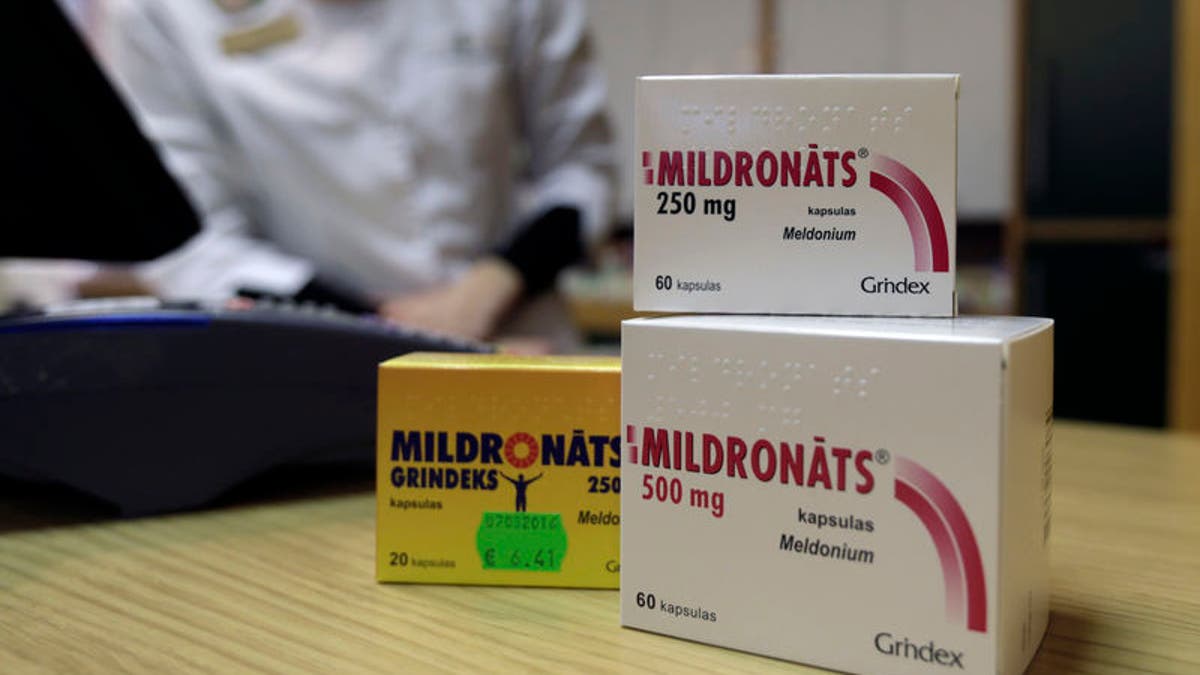
Mildronate (Meldonium) medication is pictured in the pharmacy in Saulkrasti (Copyright Reuters 2016)
LONDON – The use of meldonium - the banned drug taken by Russian tennis champion Maria Sharapova - was widespread among elite athletes competing at the European Games in Baku last year, according to research in the British Journal of Sports Medicine (BJSM).
The study, based on information volunteered by athletes and individual medical teams, and on laboratory data from doping tests from the Games in Azerbaijan, suggested up to 490 athletes may have been taking the drug during the competition.
The findings showed that during the Baku Games, 13 medallists or competition winners were taking meldonium, 66 athletes tested positive for it, and they said meldonium was detected in athletes competing in 15 of the 21 sports in the competition.
"This study highlights the widespread and inappropriate use and prescribing of this prescription drug in a generally healthy athlete population," said the researchers, led by Klaus Steinbach and Christian Schneider of the European Olympic Committees Medical and Anti-Doping Commission.
Some 6,000 athletes took part in the Games, the first major multi-sports event for the continent, with qualification spots on offer for August's Olympics in Rio de Janeiro.
The BJSM said the research, published online on Wednesday, had been shared with the World Anti-Doping Agency (WADA) and had contributed to its decision to ban use of meldonium in competitive sport as of Jan. 1 this year.
Sharapova tested positive for meldonium, also known by the brand name Mildronate, in a sample taken on Jan. 26, the day of her Australian Open quarter-final defeat to Serena Williams.
She told a news conference her family doctor had first given her the drug 10 years ago after she frequently became sick, had irregular electrocardiogram results, a magnesium deficiency and a family history of diabetes.
The 28-year-old Russian, a five-time grand slam champion, will be provisionally suspended starting March 12, the International Tennis Federation said.
Meldonium is marketed as Mildronate by the Latvian pharmaceutical firm Grindeks , which told Reuters the drug could protect athletes from cell damage, but would be unlikely to improve their competitive performance.
The BJSM study said, however, that "the drug is evidently being used with the intention to either improve recovery or enhance performance - (and) use of a substance with the intention to improve performance is, by WADA's definition, a violation of the spirit of sport".
Mildronate is registered for sale in Latvia, Lithuania, Russia and other countries of the former Soviet Union, but does not have a license from either the United States Food and Drug Administration (FDA) or the EU's European Medicines Agency.
Steinbach and Schneider said since the samples and data from laboratories were "blinded" of all personal and demographic details, they could not say which specific countries the athletes who tested positive for meldonium came from.
Athletes' self-reported declarations of meldonium use suggested there is higher use in countries where the drug is registered and prescribed then in countries where meldonium is not registered for medical use, they said.
They added, however, that "athletes and healthcare providers from any country where the drug is not officially registered for medical use could easily obtain the drug through medicines importation and exportation routes, and even more easily through online purchases".
